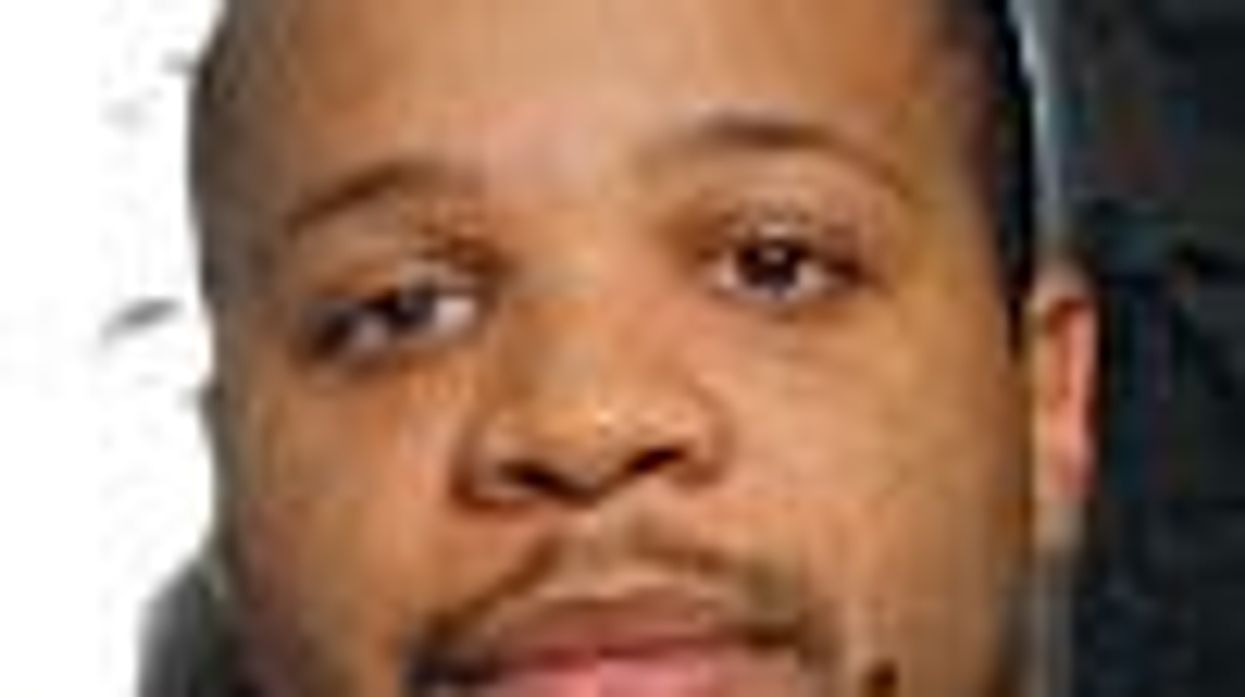On November 17
the Paris-based International Day Against Homophobia
(IDAHO) will launch a global campaign for a United Nations
resolution declaring that homosexuality should no
longer be considered a crime anywhere in the world. The proposed U.N. resolution is the brainchild
of IDAHO's founder, Louis-Georges Tin, 32, a
professor and author of a number of books
(including the Dictionary of Homophobia) who is
also a rising star of France's emerging black
movement for equality. Tin will simultaneously release a list of
hundreds of VIP endorsers of the proposed U.N.
resolution, including a gaggle of Nobel Prize winners
(among them, Bishop Desmond Tutu of South Africa, Dario Fo
of Italy, Elfriede Jelinek of Austria,
and Amartya Sen of India); political leaders,
including two former French prime ministers (Laurent Fabius
and Michel Rocard); academics (such as Princeton
University President Shirley Tilghman and world-famous
sociologist Richard Sennett); entertainers (such
as Academy Award-winning actress Meryl Streep,
David Bowie, Edward Norton, Mike Nichols, Lily Tomlin,
actor-playwright Wallace Shawn, humorist Bruce Vilanch, and
Spanish actress Victoria Abril); and a host of
renowned writers, including Doug Wright, Jon Robin
Baitz, Salman Rushdie, Gore Vidal, Sir Tom Stoppard,
Tony Kushner, Martin Amis, Ian McEwan, Russell Banks,
Bernard-Henri Levy, John Berendt, Lady
Antonia Fraser, Christopher Hitchens, Michael Chambon, Peter
Carey, and Edmund White. Getting the U.N. to commit to universal
decriminalization of homosexuality is destined to
become the central objective of the international LGBT
movement for the next decade. Tin spoke to TheAdvocate.
What chance do you think this resolution has of
passing the U.N.? Many people believe such a resolution is beyond
reach. I personally don't. Why? Because there is
already U.N. jurisprudence in our favor. In 1994, Mr.
Toonen, a citizen of Tasmania, who had been condemned for
same-sex relationships, won his case in what was then the
U.N. Commission on Human Rights--it said his
arrest was a breach of the Universal Declaration of
Human Rights and of the right of privacy. So we just ask
the U.N. to extend this jurisprudence to other
countries--75 in the world!--where
same-sex relationships are still forbidden. There's
recent evidence that this is not as utopian a project
as it might seem at first glance: In October this
year, the U.N. Working Group on Arbitrary Detention
declared that the imprisonment in Cameroon of 11 men
who'd been caught in a raid on a gay bar on
charges of homosexuality was "an arbitrary deprivation
of liberty" that violates the International Covenant
on Civil and Political Rights. That's encouraging.
How will you and IDAHO work for its passage? The campaign for the U.N. resolution will have
two main components. An external media campaign to
raise awareness within public opinion and governments
will begin with the November 17 unveiling of a
petition--for which VIP signatures are now being
gathered--on IDAHO's Web site,
www.idahomophobia.org. Also, a host of international and
country organizations have already signed on as
cosponsors of the campaign for the resolution, like
the International Lesbian and Gay Association and
France's Ligue des Droits de l'Homme. The
second battle has to be waged within the new U.N.
Council on Human Rights. We have to lobby the states
that are members and ask them to support the resolution or
at least not to vote against it. We are talking with
the government of South Africa, which is a member of
the council to sponsor the resolution. South Africa
was the first country in the world to include the principle
of nondiscrimination against gays and lesbians in its
constitution--and their sponsorship would show
that LGBT rights are not just a "Western issue."
What exactly does the resolution say?
The text I wrote
asks for a universal decriminalization of homosexuality.
It is very clear, easy, and simple, and based solely on the
articles of the U.N.'s Universal Declaration of
Human Rights that were used to justify the decision in
the Toonen case. I did not want to write a
philosophical text on the issue, because an argument that
may be relevant in one country will certainly be
irrelevant in another one. We need a common language
to support human rights. What could be more relevant and
more international than the Universal Declaration of Human
Rights itself?
Why did you choose this moment to launch this campaign? The Toonen case was ruled on 12 years ago, so I
thought it was high time that LGBT organizations
decided to take advantage of it at the U.N. To be
honest, I fail to see any issue that could be more important
than this one for LGBT organizations. On May 17, 1990,
the World Health Organization decided that
homosexuality could no longer be regarded as a disease,
which is why I chose that date for the International Day
Against Homophobia. The first IDAHO was only
celebrated in 2005, so we really couldn't do
anything before that--but now our organization has
spread to more than 50 countries and been endorsed by
the European Parliament, so I think we are ready to go
farther. Look, gays and lesbians around the world
cannot wait any longer for their love to cease being made a
crime. Many are in jail, or at risk of being jailed.
Some are being killed. This has to stop now.




































































Charlie Kirk DID say stoning gay people was the 'perfect law' — and these other heinous quotes